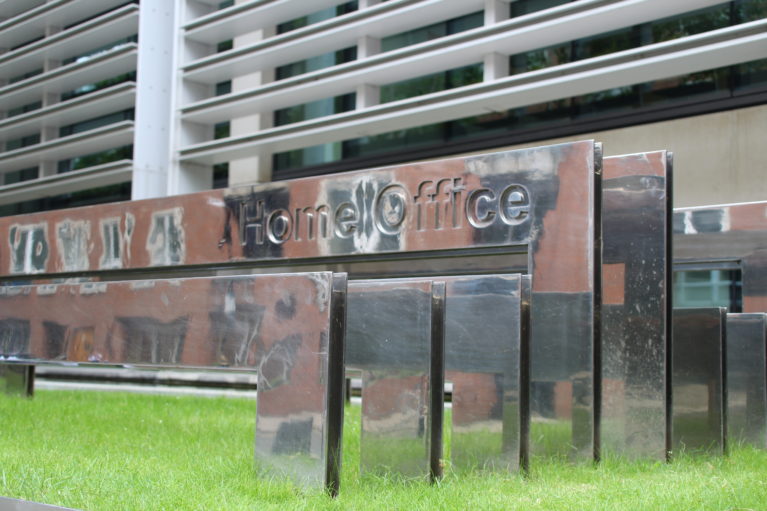Hostile environment
The hostile environment is everywhere – but we can bring it down
Posted on 10 Apr 2018
The Government’s hostile environment is turning public servants in to border guards, aiming to make life unbearably difficult for undocumented people.
Britain can be an unforgiving place for migrants.
The Government’s hostile environment (or, as ministers have since attempted to rebrand it , ‘compliant environment’) policies aim to make life unbearably difficult for undocumented people in order to deter more migrants coming to the UK and to encourage people to leave.
They are a web of immigration controls embedded into every part of our society, with the aim of infiltrating all areas of people’s lives: imposing immigration checks when people access public services, work, bank accounts or housing, denying access to people who have the wrong immigration status and increasing state surveillance of everyone in the name of immigration control.
This approach is constantly widening in scope – and breaching more people’s human rights in the process.
Public servants turned border guards
The Government relies on public servants and private individuals for this type of intrusive immigration control to work on every level.
Police, bankers, social workers, landlords – all are expected to play a part in this new regime of border controls in everyday life.
Trusted public servants are – often unknowingly and unwillingly – being made to serve as informants.
Teachers and doctors are being dragged in, as information they collect on pupils and patients is used by the Home Office for immigration enforcement.
The Data Protection Bill, which is approaching Report Stage in the House of Commons, could make data-sharing for immigration purposes more prolific – extending the Government’s obsessive policing of migrants to yet more areas of life.
So it’s crucial the public know what hostile environment policies look like – and understand how they can challenge them.
Which is exactly why Liberty, migrants rights’ NGOs and grassroots campaigning organisations have today launched our Guide to the Hostile Environment.
Discrimination and suspicion
Recent press coverage shows the devastating impact of the hostile environment on individuals’ lives. As one UK resident caught up in the system said: “the stress of it is making me ill”.
But the hostile environment reaches well beyond the Government’s ‘target’ of undocumented people. It spreads discrimination and suspicion far and wide.
Anyone deemed to look ‘foreign’ is at risk of being denied access to vital services. Black and minority ethnic (BAME) people are particularly affected.
The Joint Council for the Welfare of Immigrants conducted a report on the Government’s ‘Right to Rent’ scheme – which requires landlords to check the immigration status of every prospective tenant, and deny housing to those without the ‘right to rent’.
Their ‘mystery shopper’ exercise revealed that a BAME citizen “who could not show a passport was 14 per cent more likely to receive a negative response or no response than a white British mystery shopper in the same position”.
And there’s no evidence that these policies are achieving what the Government wants them to.
A recent investigation by the Chief Inspector of Borders and Immigration into the Right to Rent scheme found it to be poorly implemented and said it had “yet to demonstrate its worth as a tool to encourage immigration compliance”.
Hope for change
A diverse range of groups across the country are taking meaningful action, as communities organise to resist these policies and – ultimately – bring them down.
Anti-Raids Network, for example, is a collaborative direct action group. They disseminate materials in various languages on what you can do if you witness an immigration raid.
Groups are also working tirelessly on challenging these injustices in the courts. Migrants Rights’ Network and Against Borders for Children have been working with Liberty to take government bodies to court over their shadowy data processing practices.
In December 2017, North East London Migrant Action and Public Interest Law Unit challenged the cruel Home Office practice of deporting migrants for sleeping rough. The practice was found to be unlawful.
The threat of the hostile environment looms large for migrants – but the struggle against it is growing too.
These toxic, divisive policies depend on the willing participation of people across society. As long as we refuse to participate, we can fight the Government’s attempts to turn us all into border guards – and fight for a country that guarantees people’s human rights, whoever they are and wherever they come from.
Read more and find out how you can take action.
I'm looking for advice on this
Did you know Liberty offers free human rights legal advice?
What are my rights on this?
Find out more about your rights and how the Human Rights Act protects them
Did you find this content useful?
Help us make our content even better by letting us know whether you found this page useful or not



